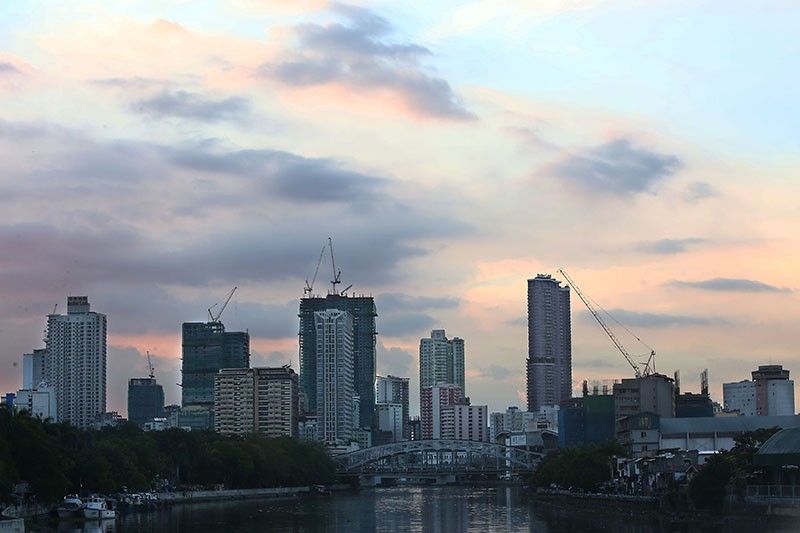Commentary: Attracting right foreign investors amid COVID-19 pandemic

Numbers have many stories to tell. When data from the Philippine Statistics Authority (PSA) bared a 16.5% contraction in economic growth during the second quarter of 2020, which was the steepest fall in decades, the decline itself was nothing new. All the economies in the world also plunged in varying degrees.
The glaring difference was that, prior to 2020, the Philippines had one of the most impressive economic numbers. As such, it had a promising future in the eyes of economists. Then came the COVID-19 pandemic, and positive forecasts have since overturned.
The social impact of the pandemic was evident in the latest Social Weather Stations (SWS) survey, which revealed that the proportion of families experiencing involuntary hunger reached a new record-high of 30.7% or around 7.6 million households.
On a worldwide scale, the pandemic also exposed a flaw that, for decades, characterized global production and trade, which was the root of the widespread economic woes. When countries decided many years ago to make China their manufacturing hub and main market, they unconsciously committed a basic error in management: concentration risk. This risk tells us in plain language “not to put all our eggs in one basket.”
Today, the pandemic that first emerged in China has caused global economic problems that will take decades to correct. Recognizing the extent of this damage, major economies have started to recalibrate their respective growth and sustainability formulas by reducing their overdependence on China.
The US and Japan are offering incentives to their companies to move manufacturing plants out of China. Taiwan and South Korea continue to pursue their respective southbound policies, which they introduced a few years back as a result of the US-China trade war to forge stronger economic ties with Southeast Asia and other southern neighbors and lessen their reliance on China.
The strategy is quite basic: An economy should have a healthy balance of diversified supply chains to ensure production sustainability. The current hard times prove that going back to basics makes good practical sense over the long term.
The Philippines’ potential role in the global supply chain
No single country has the resources to produce all the goods that the world needs. China’s advantage as a global manufacturing hub was made possible by the existence of a working supply chain, much of which comes from Southeast Asia.
If Japan and other major economies had tapped various supply sources the way China did, there would have been more balance in their respective production numbers for purposes of sustainability. Organized and diversified supply chains provide the lifeblood for a sustainable global economy.
According to the International Labor Organization (ILO), the present economic crisis could potentially lead to long-lasting structural effects such as the reconfiguration of global supply chains in certain industries, reshoring and/or near-shoring, diversification of suppliers, and increased automation.
As major economies look towards Southeast Asia, there is a need for the Philippines to recalibrate its strategy for long-term economic growth and recovery by strengthening its manufacturing sector and attracting long-term foreign investments. While the Philippines, in principle, seeks the right long-term investments, its government policies do not always actualize the intention.
The government needs to improve by implementing the Ease of Doing Business Act, strengthen anti-corruption measures, and consolidate infrastructure programs and investment incentives. The redistribution of supply chains presents the Philippines with an economic opportunity. In this light, the Philippines should create an attractive investment climate by improving its manufacturing sector and promoting investor-driven policies.
Relative to other countries, the Philippines possesses the following comparative advantages: ideal geographical location, English-speaking population, ample supply of college-educated workforce, low cost of living, workplace ethic that is closer to those of Western-based locators, a strong currency and macroeconomic fundamentals, and abundant natural resources.
As its Asian neighbors are focused on attracting companies exiting China after the COVID-19 severely impacted the global supply chain, the Philippines is left playing catch-up. Foreign investors have opted to relocate to more investor-friendly countries like Vietnam.
Philippine manufacturing as a vital key for economic recovery
As Japan, Taiwan and South Korea are now looking to connect more strongly to Southeast Asia to diversify their respective supply chains, the Philippine government should take the opportunity to make its presence felt as a worthy destination for long-term investments.
The Philippines should calibrate its growth trajectory by veering away from its long reliance on traditional growth drivers, such as consumer spending, and take a turn towards an investment-driven economy.
This means that the Philippines will also need to institutionalize the “rule of law” in all its processes because this creates a climate of stability that long-term foreign investors are looking for. In authoritarian regimes, the trend is towards “rule by law,” which ultimately breeds corruption.
With its recent trade history with the US and Japan, the Philippines has proven that it can compete head-on with other countries in terms of presenting its exports. Thus, the country only needs to improve on its manufacturing to expand its export offerings.
Now is the best time for the Philippines to compete globally from a position of strength and attract the right investors. By doing so, our country can recalibrate its national strategies for economic recovery and sustainable growth in the new normal.
Venice Isabelle Rañosa is a research manager at think tank Stratbase ADR Institute.
- Latest




























